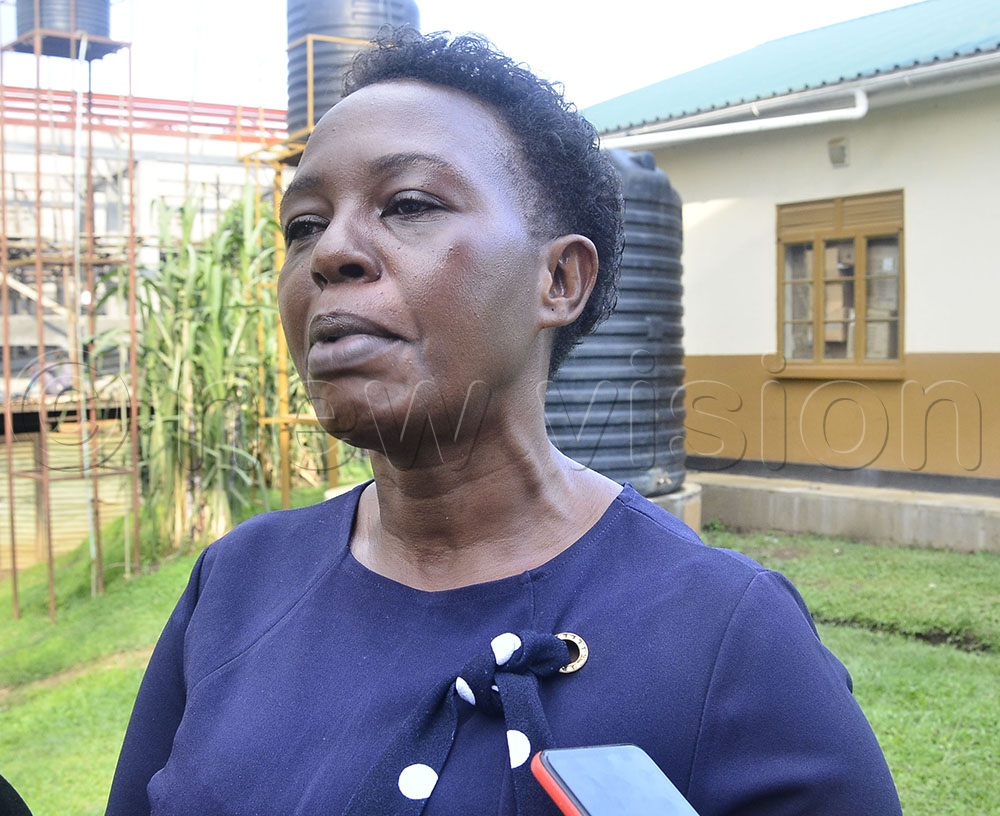Teenage pregnancies rise as health workers struggle to fill gap left by funding cuts
“We were idle and tried out sex. When she told me she was pregnant, I denied responsibility and told her to stay at her parents’ home since we were both still in school,” Brian narrates.
Marie Stopes has rolled out several training programmes that have helped communities understand the importance of family planning and access vital reproductive health services. (Credit: Juliet Waiswa)
Barbara Kansiime, a senior midwife at Kataraka Health Centre IV in Fort Portal City, says health workers have resorted to community sensitisation after funds were withdrawn. (Credit: Juliet Waiswa)
At just 19 years old, Brian (not real name) is already a father to a one-and-a-half-year-old boy. His story reflects the growing number of teenage parents in Uganda.
Brian recalls that at 17, while in Primary Seven, he gave in to peer pressure and impregnated a girl his age, who was then in Senior One.
“We were idle and tried out sex. When she told me she was pregnant, I denied responsibility and told her to stay at her parents’ home since we were both still in school,” he narrates.
The situation escalated when the girl threatened to commit suicide. Their parents intervened and agreed that Brian’s family would pay the bride price.
“Although my parents paid, we both decided to stay in school. The mother of my child is now in Senior Three while I am in Senior Two. After giving birth, her parents took on the responsibility of caring for our child,” he adds.
Brian’s experience is far from unique. Many teenagers in Fort Portal city and across Uganda are becoming parents due to peer pressure and lack of access to sexual reproductive health information.
As Uganda joins the rest of the World to commemorate World Contraception Day under the theme, 5: Breaking Barriers, Building Bridges for Global Access, 17-year-old Jovia Muhindo shares a similar story. She was lured into sex with small gifts such as knickers, sanitary pads, chapatis, and free boda-boda rides to school.
“I did not know it would end in pregnancy,” she says quietly.
Health workers link such cases to the withdrawal of critical reproductive health funding by the US government under the Trump administration. According to the Guttmacher Institute, the cuts are expected to result in millions of unintended pregnancies and an estimated 34,000 additional maternal deaths annually across Africa.
In Uganda, the freeze triggered widespread misinformation. Rumours about contraception bans spread, pushing some women to even request the removal of contraceptive implants.
Community sensitisation
To bridge the gap, organisations have stepped in by training peer educators to engage adolescents and young mothers on sexual reproductive health rights (SRHR).
Barbara Kansiime, a senior midwife at Kataraka Health Centre IV in Fort Portal City, says health workers have resorted to community sensitisation after funds were withdrawn.
“We have trained health workers, empowered peer mentors, and carried out peer-to-peer sessions in communities to provide services and guidance to teenagers,” she said.
Medius Muhindo, a village health team (VHT) peer supervisor at the same facility, noted that cultural beliefs remain a significant barrier.
“Some communities reject family planning, insisting that women should give birth to as many children as possible,” she explained.
Despite these challenges, progress has been made. Annet Kabahenda, the assistant city health officer in charge of Maternal and Child Health, revealed that consistent outreach has boosted family planning uptake. “We have seen an increase from 34 per cent in 2020 to 64 per cent,” she said.
Kabahenda adds that all health facilities now offer on-site orientation and that health workers are equipped to provide family planning information. She highlighted the role of VHTs and partners such as Marie Stopes, who use mobile vans to reach communities with services.
Intervention
Marie Stopes has rolled out several training programmes that have helped communities understand the importance of family planning and access vital reproductive health services.